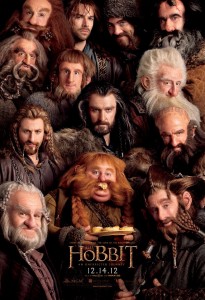 Welcome to our collection of TORn’s hottest topics for the past week. If you’ve fallen behind on what’s happening on the Message Boards, here’s a great way to catch the highlights. Or if you’re new to TORn and want to enjoy some great conversations, just follow the links to some of our most popular discussions. Watch this space as every weekend we will spotlight the most popular buzz on TORn’s Message Boards. Everyone is welcome, so come on in and join in the fun!
Welcome to our collection of TORn’s hottest topics for the past week. If you’ve fallen behind on what’s happening on the Message Boards, here’s a great way to catch the highlights. Or if you’re new to TORn and want to enjoy some great conversations, just follow the links to some of our most popular discussions. Watch this space as every weekend we will spotlight the most popular buzz on TORn’s Message Boards. Everyone is welcome, so come on in and join in the fun!
Continue reading “TORn Message Boards Weekly Roundup – April 8, 2013”
If you have a Tolkien/Middle-earth inspired poem you’d like to share, then send it to poetry@theonering.net. One poem per person may be submitted each month. Please make sure to proofread your work before sending it in. TheOneRing.net is not responsible for poems posting with spelling or grammatical errors.
Posted in:
Share:

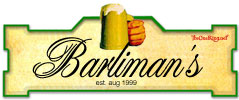 A little earlier, Hall of Fire regulars and guests concluded a lively discussion about The Uruk-hai, the chapter of The Two Towers where Merry and Pippin escape from the clutches of the orcs. For those who missed it, here’s a log to peruse.
A little earlier, Hall of Fire regulars and guests concluded a lively discussion about The Uruk-hai, the chapter of The Two Towers where Merry and Pippin escape from the clutches of the orcs. For those who missed it, here’s a log to peruse.
Next weekend, we’ll be discussing the second of the three great unions of elves and humans: Idril and Tuor. Continue reading “Log of Hall of Fire’s Uruk-hai chat”
If you have a Tolkien/Middle-earth inspired poem you’d like to share, then send it to poetry@theonering.net. One poem per person may be submitted each month. Please make sure to proofread your work before sending it in. TheOneRing.net is not responsible for poems posting with spelling or grammatical errors.
Posted in:
Share:

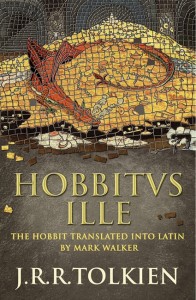 The review copy of Hobbitus Ille by Mark Walker is a beautifully presented hardcover edition with art and interior maps in the style of early English copies and is provided by Harper Collins.
The review copy of Hobbitus Ille by Mark Walker is a beautifully presented hardcover edition with art and interior maps in the style of early English copies and is provided by Harper Collins.
Walker has taken up a very brave challenge in providing us with the first Latin translation of Tolkien’s The Hobbit. His intent was to provide as direct a translation of Tolkien’s own words as possible and the end result is a complete and unabridged volume where even the poetry is in Latin. This direct translation is not the hallmark of the best translations, nor is it the Classical Latin of Caesar and Cicero. Continue reading “Reviewed: Hobbitus Ille”
If you have a Tolkien/Middle-earth inspired poem you’d like to share, then send it to poetry@theonering.net. One poem per person may be submitted each month. Please make sure to proofread your work before sending it in. TheOneRing.net is not responsible for poems posting with spelling or grammatical errors.
Posted in:
Share:

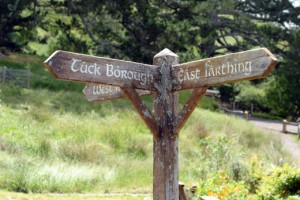 In this interesting feature, Tolkien scholar Michael Martinez answers what on the surface seems a very simple question: why is the land of the Hobbits in The Lord of the Rings called The Shire? Continue reading “Why is it called The Shire?”
In this interesting feature, Tolkien scholar Michael Martinez answers what on the surface seems a very simple question: why is the land of the Hobbits in The Lord of the Rings called The Shire? Continue reading “Why is it called The Shire?”
If you have a Tolkien/Middle-earth inspired poem you’d like to share, then send it to poetry@theonering.net. One poem per person may be submitted each month. Please make sure to proofread your work before sending it in. TheOneRing.net is not responsible for poems posting with spelling or grammatical errors.
Posted in:
Share:

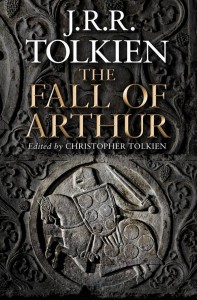 As you’re probably aware, Harper Collins is publishing J.R.R. Tolkien’s The Fall of Arthur in May 2013.
As you’re probably aware, Harper Collins is publishing J.R.R. Tolkien’s The Fall of Arthur in May 2013.
Edited by the Professor’s son, Christopher, the publication also includes “three illuminating essays that explore the literary world of King Arthur, reveal the deeper meaning of the verses and the painstaking work that his father applied to bring it to a finished form, and the intriguing links between The Fall of Arthur and his greatest creation, Middle-earth.”
But while we all wait, I thought people might enjoy this interesting speculation about what The Fall of Arthur might hold for us that I stumbled across over on Tolkien Library. Continue reading “Some speculation about Tolkien’s The Fall of Arthur”
If you have a Tolkien/Middle-earth inspired poem you’d like to share, then send it to poetry@theonering.net. One poem per person may be submitted each month. Please make sure to proofread your work before sending it in. TheOneRing.net is not responsible for poems posting with spelling or grammatical errors.
Posted in:
Share:

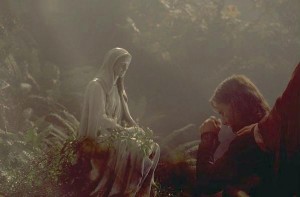 I quite enjoyed this short piece explaining the sacrifice that Gilraen, the mother of Aragorn, makes for her people. There’s also a bit of linguistic geekery for the word nerds. Enjoy. Continue reading “The tragedy of Gilraen, Aragorn’s mother”
I quite enjoyed this short piece explaining the sacrifice that Gilraen, the mother of Aragorn, makes for her people. There’s also a bit of linguistic geekery for the word nerds. Enjoy. Continue reading “The tragedy of Gilraen, Aragorn’s mother”
If you have a Tolkien/Middle-earth inspired poem you’d like to share, then send it to poetry@theonering.net. One poem per person may be submitted each month. Please make sure to proofread your work before sending it in. TheOneRing.net is not responsible for poems posting with spelling or grammatical errors.
Posted in:
Share:

 Welcome to our collection of TORn’s hottest topics for the past week. If you’ve fallen behind on what’s happening on the Message Boards, here’s a great way to catch the highlights. Or if you’re new to TORn and want to enjoy some great conversations, just follow the links to some of our most popular discussions. Watch this space as every weekend we will spotlight the most popular buzz on TORn’s Message Boards. Everyone is welcome, so come on in and join in the fun!
Welcome to our collection of TORn’s hottest topics for the past week. If you’ve fallen behind on what’s happening on the Message Boards, here’s a great way to catch the highlights. Or if you’re new to TORn and want to enjoy some great conversations, just follow the links to some of our most popular discussions. Watch this space as every weekend we will spotlight the most popular buzz on TORn’s Message Boards. Everyone is welcome, so come on in and join in the fun!


 A little earlier, Hall of Fire regulars and guests concluded a lively discussion about The Uruk-hai, the chapter of The Two Towers where Merry and Pippin escape from the clutches of the orcs. For those who missed it, here’s a log to peruse.
A little earlier, Hall of Fire regulars and guests concluded a lively discussion about The Uruk-hai, the chapter of The Two Towers where Merry and Pippin escape from the clutches of the orcs. For those who missed it, here’s a log to peruse. The review copy of Hobbitus Ille by Mark Walker is a beautifully presented hardcover edition with art and interior maps in the style of early English copies and is provided by Harper Collins.
The review copy of Hobbitus Ille by Mark Walker is a beautifully presented hardcover edition with art and interior maps in the style of early English copies and is provided by Harper Collins.  In this interesting feature, Tolkien scholar Michael Martinez answers what on the surface seems a very simple question: why is the land of the Hobbits in The Lord of the Rings called The Shire?
In this interesting feature, Tolkien scholar Michael Martinez answers what on the surface seems a very simple question: why is the land of the Hobbits in The Lord of the Rings called The Shire?  As you’re probably aware, Harper Collins is publishing J.R.R. Tolkien’s The Fall of Arthur in May 2013.
As you’re probably aware, Harper Collins is publishing J.R.R. Tolkien’s The Fall of Arthur in May 2013. I quite enjoyed this short piece explaining the sacrifice that Gilraen, the mother of Aragorn, makes for her people. There’s also a bit of linguistic geekery for the word nerds. Enjoy.
I quite enjoyed this short piece explaining the sacrifice that Gilraen, the mother of Aragorn, makes for her people. There’s also a bit of linguistic geekery for the word nerds. Enjoy.